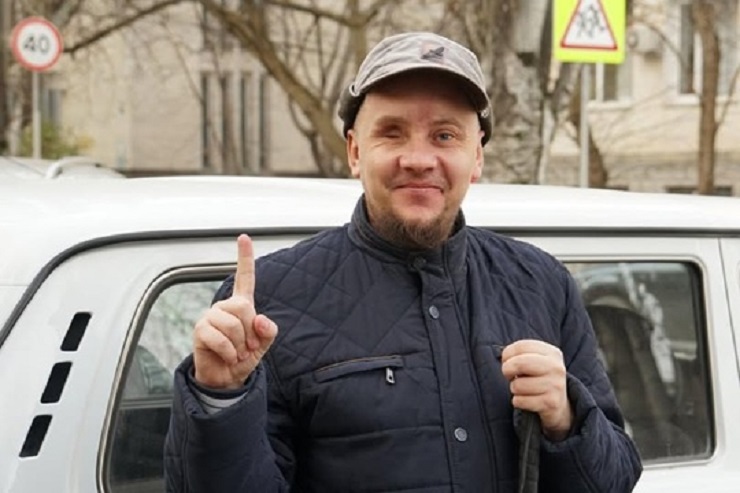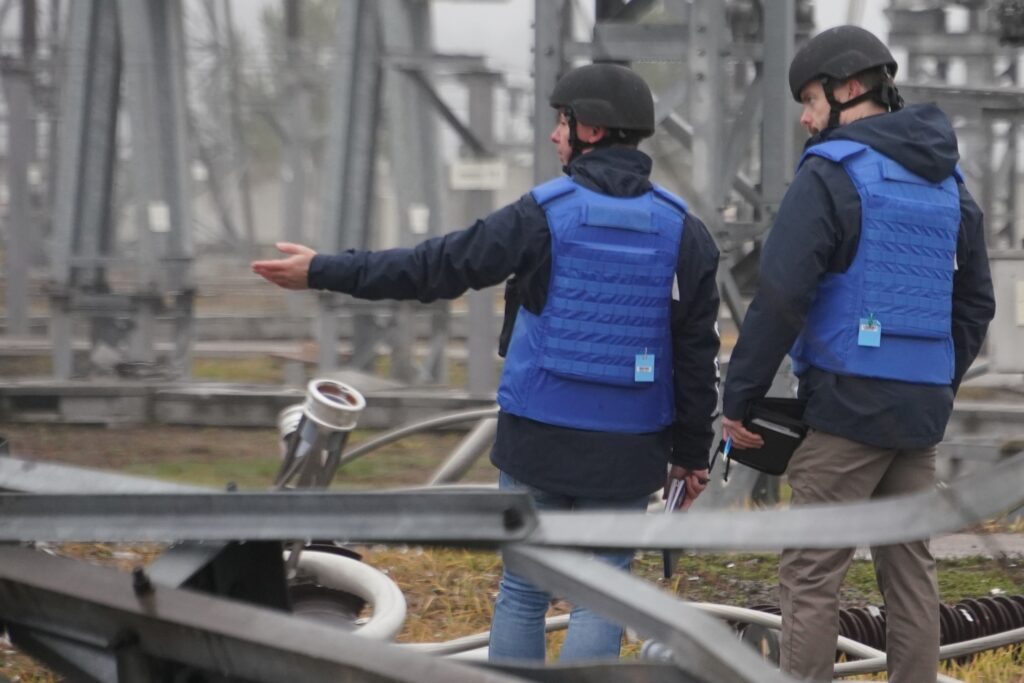Crimean political prisoner without sight. How Russia threw a disabled man into a Siberian prison for 17 years
12 June 2025 14:58
Oleksandr Sizikov is one of the most striking examples of Russian repression in the occupied Crimea. His complete blindness did not prevent the FSB from recognizing him as a “terrorist” and Russian courts from sending him to a maximum security colony.
on May 26, Crimean Oleksandr Sizikov was released from a Siberian prison, and on May 28 he returned to Crimea.
Less than a week after his release (June 4) [Kommersant] contacted the Crimean resident, who gave his first major interview to a Ukrainian publication.
His story is the story of the trials and tribulations of the Russian regime against a person with a disability.
Arrest
Repressions against Oleksandr Sizikov began on July 7, 2020, when seven people, including Oleksandr, were detained during searches in occupied Crimea.
Russian security forces planted Islamic literature on him, which was used as evidence of alleged “extremist activity” (Oleksandr converted to Islam at the age of 22). All the detainees were accused of participating in the organization Hizb ut-Tahrir, a political party that operates freely in Ukraine but is banned in Russia, including in occupied Crimea.
Six Crimeans were sent to the Simferopol pre-trial detention center, and Oleksandr was placed under house arrest. This decision was based on his disability. on June 22, 2009, while riding a bicycle, Oleksandr was involved in a terrible accident, as a result of which he completely lost his eyesight and suffered serious injuries, including the removal of his spleen.
In 2023, a Russian court in Rostov-on-Don found him and other Crimeans guilty of participating in and organizing a terrorist group and sentenced him to 17 years in prison. Sizikov remained under house arrest, as even under Russian law, imprisonment of people with such disabilities is prohibited.
However, in September 2024, Crimean police officers broke into the house where Oleksandr lived with his mother and took him to an unknown location. Later it turned out that he was placed in a temporary detention center in Bakhchisarai, and then transferred to SIZO-1 in Simferopol.
“I was supposed to be in a special cell with a shower, receive dietary food and, most importantly, be under the supervision of doctors. None of this happened. On the contrary, there were the most severe conditions. Even the medicines my mother sent me were not handed over by the prisoners. And these are the medications that I have to take every day because of my 3rd degree hypertension,” says Sizikov.
The stage
At the end of November, it was decided to transfer him from the Simferopol detention center to a prison in Russia.
“During a walk, I told the other prisoners that I was being transferred to a high-security prison in Minusinsk, Krasnoyarsk Krai. I couldn’t tell my family because I was in a special block.
The prisoners themselves passed this information to the outside in various ways – this is often practiced. And on December 9, during breakfast, I was told to pack my things. That’s how the stage began.”
The transfer is one of the most difficult periods of detention, especially because of the terrible conditions and the inability to contact family. It causes stress and anxiety, prisoners are fed poorly, allowed to use the toilet once or twice a day, and there is a risk of violence and abuse.
“The stage is a male striptease that lasts forever. You are completely undressed, forced to open your mouth, stick out your tongue, raise your arms, legs, and squat. A mirror is placed between your legs so that the jailers can see your anus. And this is repeated three times. This is how it is in every detention center, every police car, every train,” Oleksandr recalls.
He traveled 5,000 kilometers from Crimea to Minusinsk and arrived only on February 8.
Prison
All the prisons in Krasnoyarsk Krai are so-called “red” prisons. This means that the administration has full control over the internal structure, in contrast to the “black zones” where the “brothers” run the prison according to informal “concepts”.
“The prison in Minusinsk is an FSB prison. They send you there to break you. There are two groups there: Ukrainian prisoners of war and those convicted under Article 205 – citizens of Russia, Uzbekistan, Tajikistan, etc. We were divided,” says Sizikov.
“I remember someone hitting me in the eye with a towel. Another one bit my ear – I still don’t understand why. I was in shock. I was also eating soup, and they crumbled cookies on my plate. My cellmates were inadequate.”
“I knew I would be released sooner or later. After all, I had a diagnosis confirmed by the prison hospital – complete atrophy of the optic nerve, complete blindness. The hospital said that there will be a commission that will give the court a recommendation for release.”
on May 19, Sizikov was transferred to the pre-trial detention center (a facility that functions as a pre-trial detention center), and on the same day, the court hearing began, which was postponed to May 26.
“At the court, they read out the conclusion of the hospital, which recommended my release. This position was supported by the prison representative, the prosecutor, and later by the court. I was released,” Oleksandr says with joy.
Freedom
After the court’s decision, he was returned to prison, where he was held for another 7 hours, and later the gates of the Minusinsk prison were opened for Sizikov.
on May 28, he was taken to Sochi. There, the former prisoner was met by his mother and lawyers, who went home with him to Crimea.
But Sizikov does not want to stay in Crimea. He is sure that he will not be allowed to live freely at home.
“In Turgenivka, where we live, there are many mean people. They mocked my mother, called her ‘the mother of a terrorist’. Although, of course, there were those who were happy, especially the Crimean Tatars. They met me and welcomed me. But I want to leave Crimea. And take my mom with me. As long as Crimea is in the political field of the Russian Federation, there will always be repressions here.”
Asif Aliyev, specially for Kommersant Ukrainian









